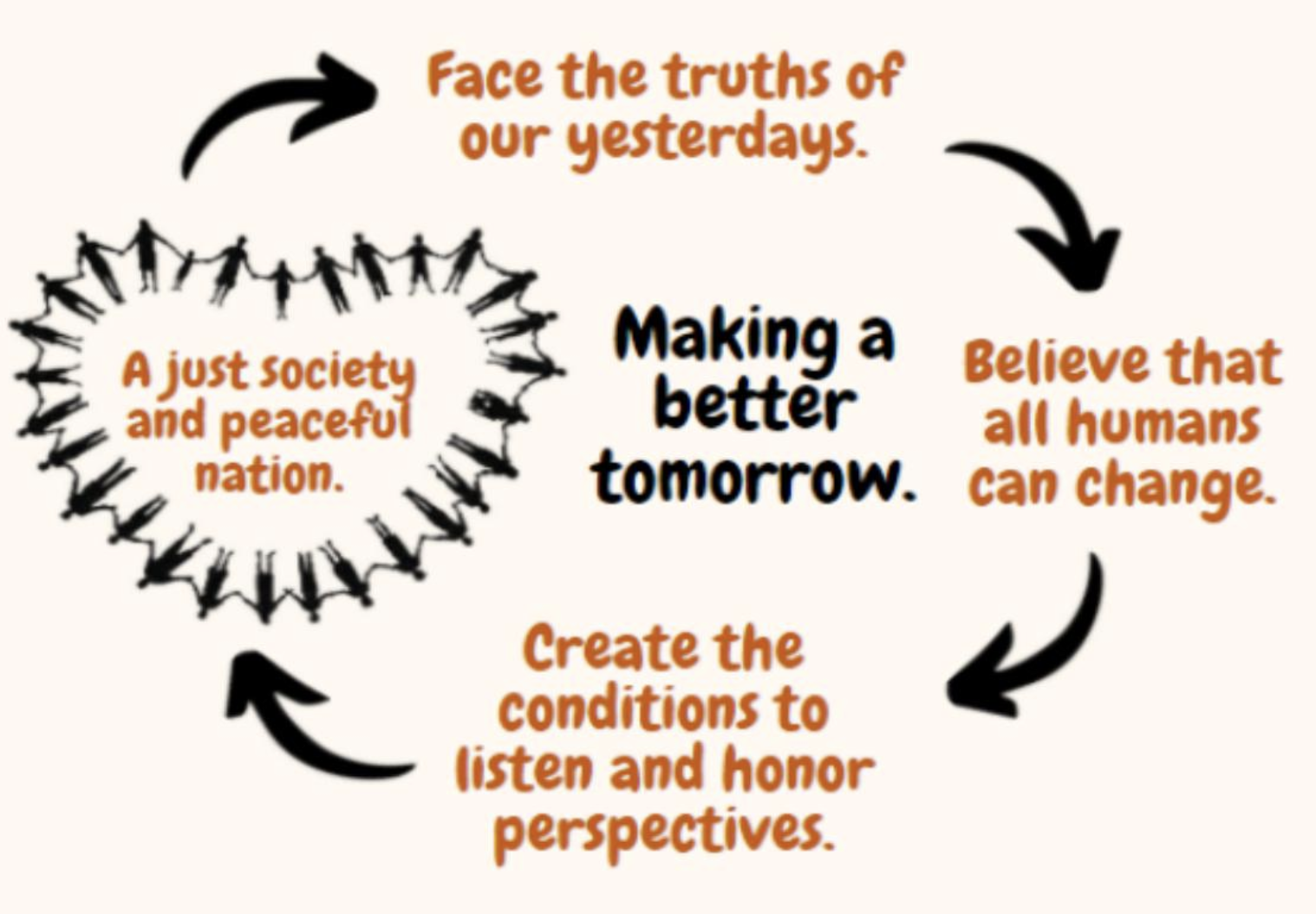The following remarks were delivered by Executive, Jennifer Copeland, during the public launch of the North Carolina — Truth, Justice and Reconciliation Commission (NC-TJRC) on January 20, 2022. To watch the entire launch, click here. To learn more about the commission, click here.
The North Carolina Council of Churches affirms the work of this commission and we are proud to be listed as a participating organization.
We’re here today to talk about truth, justice, and reconciliation; but reconciliation is often a misunderstood concept. It gets reduced to a simple, “let’s kiss and make up” idea, like nothing too bad happened and we should all be able to get along. Reconciliation is so much more than that.
For Christians, we can’t talk about reconciliation until we acknowledge that it begins with God. God reaches out to humanity reconciling God’s self to us after we have committed unimaginable wrongs against each other, violating God’s 2nd greatest commandment to love each other.
Still, God reconciles with us so that we can reconcile with each other and, ultimately, be reconciled within our selves. Here’s where truth comes in. If the one who has done wrong toward another can’t tell the truth about that, then reconciliation hits a dead end. And those who have done wrong must continue to lie to themselves and each other and pretend nothing happened.
Let me give you an example of what that looks like. I have a black friend and a white friend who both grew up in Wilmington, still have family in Wilmington, and they never heard about the 1898 coup until they were grownups and had moved away from Wilmington. We can see how unhealthy this is, not just because those wronged receive no acknowledgment—that’s bad—but just as bad is the pressure to lie to ourselves and others.
At some point white people went from bragging about what they did in 1898 to pretending it never happened. Black people mostly left town that night in order not to be killed. Those who stayed knew enough not to mention it, especially to their children who might talk about it in the wrong place and get themselves killed. No truth. No justice. No reconciliation.
It’s time to talk about it. It’s time to talk about Wilmington, about Charlotte schools, about the Durham Expressway, about the loans denied, the murders committed, the children left homeless. It’s time to tell the truth so we can be about the work of reconciliation. Real reconciliation that confesses wrongdoing, accepts forgiveness, and refuses to live the lie one more minute. It’s time to tell the truth. It’s time to be healed. It’s time for reconciliation.

